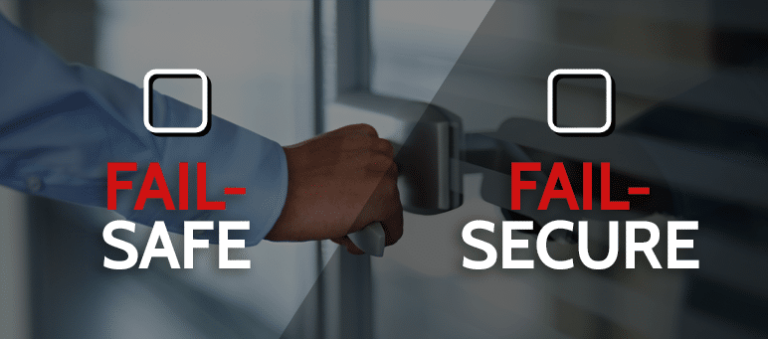What Are the Healthcare Essentials for Digital Nomads Living in Spain?
Healthcare for Digital Nomads in Spain is a critical consideration for anyone planning to work remotely in this beautiful country. With its rich culture, stunning scenery, and favorable climate, Spain has become a top choice for digital nomads. However, it’s vital to understand the healthcare options available to ensure you stay healthy and secure while living and working abroad. In this blog, we will explore various aspects of healthcare, insurance options, and costs associated with health care in Spain for digital nomads.
What Are the Healthcare Options for Digital Nomads in Spain?
Living the digital nomad lifestyle in Spain can be incredibly exciting. Between the sunny beaches, vibrant cities, and rich culture, it’s a fantastic place to work remotely. But if you’re considering this adventure, you might wonder about healthcare options in Spain. Let’s break down what you need to know to stay healthy while enjoying your time in this beautiful country.

Public Healthcare System
Spain boasts a robust public health care system known as the Sistema Nacional de Salud (SNS). This system offers free or low-cost health care services to residents and citizens. As a digital nomad, your eligibility for public health care depends on your residency status. If you plan to stay long-term and become a legal resident, you might qualify for coverage. This means you could access doctors, hospitals, and specialists without heavy fees, which is a significant perk.
But how do you get in? Well, it usually involves registering with your local town hall and obtaining a social security number. It sounds a bit bureaucratic, but once you’re in, you’ll enjoy many benefits. Just imagine having access to well-trained health care professionals and modern facilities, all while sipping a café con leche in your favorite plaza.
Private Health Insurance
If you’re not eligible for the public healthcare system, don’t worry. Many digital nomads opt for private health insurance, which can be tailored to meet your needs. Private insurance often offers quicker access to specialists and shorter wait times for procedures.
There are plenty of providers out there, ranging from international companies to local firms. When shopping for insurance, consider factors like coverage limits, network hospitals, and whether they have English-speaking doctors. It’s all about finding the right fit for your lifestyle. Think of it as choosing the best tapas bar in town; you want one that suits your taste and budget!
EU and EEA Citizens
If you’re from the EU or the European Economic Area (EEA), you’re in luck. You can use your European Health Insurance Card (EHIC) to access healthcare services in Spain. This card allows you to receive medically necessary state-provided health care during your stay. It’s an excellent option for short visits, but keep in mind that it might not cover everything, so it’s wise to have additional travel insurance for emergencies.
Having the EHIC is like having a VIP pass at a concert; it gets you in, but you still want to be prepared for any surprises that might pop up. Just remember that it’s not a substitute for comprehensive health insurance.
Telemedicine Options
In today’s tech-savvy world, telemedicine is a game-changer. Many healthcare providers in Spain offer virtual consultations, making it super convenient for digital nomads. Whether you need a quick check-up, a prescription, or some advice on a minor ailment, you can do it all from your laptop or phone. This is particularly handy if you’re in a remote area or just don’t feel like going to the doctor’s office.
Telemedicine can be a lifesaver when you’re juggling work and travel. Imagine being able to consult with a doctor while lounging in a park, all without the hassle of waiting in line.
Healthcare Tips for Digital Nomads
When it comes to your health, a little preparation goes a long way. Here are some tips to keep in mind:
- Research Before You Go: Before arriving in Spain, check out your healthcare options. Knowing what’s available will save you time and stress later.
- Pack Essentials: Bring any necessary medications, and consider carrying a basic first-aid kit. While pharmacies are plentiful in Spain, it’s best to have your must-haves on hand.
- Stay Informed: Familiarize yourself with local healthcare facilities, especially if you’re heading to a more remote area. Knowing where to go in case of an emergency can provide peace of mind.
- Consider a Health Insurance Broker: If sorting through different insurance options feels overwhelming, a broker can help you find a plan that fits your lifestyle and budget.
Navigating healthcare as a digital nomad in Spain doesn’t have to be daunting. Whether you opt for the public health care system, private insurance, or even telemedicine, you have options that can cater to your needs. Staying healthy while exploring this beautiful country is essential, and with a little planning, you can focus on enjoying your adventures without worrying about health care. If you have questions about the specifics of healthcare in Spain or need guidance, the Marfour International Law Firm can provide valuable insights and assistance tailored to your unique situation. With the right approach, you can make the most of your digital nomad experience in Spain.
How Does Private Healthcare Differ in Spain?
When it comes to healthcare, Spain offers a mix of public and private systems that can sometimes confuse newcomers. If you’re considering a move to Spain or just curious about how private healthcare operates, let’s break it down in a way that makes sense.
Insurance Plans and Coverage
When you think about private healthcare in Spain, insurance plans are a big part of the picture. Many Spaniards and expats choose private health insurance, which varies widely in coverage and cost. You can find basic plans that cover essential services, or you can go for comprehensive options that include a wider range of treatments, specialist consultations, and even wellness services like physiotherapy. It’s a bit like choosing a phone plan; you can select what features are most important to you.

Access to Specialists
One of the biggest perks of private healthcare in Spain is the ease of access to specialists. If you’ve ever experienced the frustration of waiting months to see a doctor, private health care might feel like a breath of fresh air. With private insurance, you can often book an appointment with a specialist much faster, sometimes within days or even hours. This quick access can be a game-changer, especially if you’re dealing with something urgent.
Facilities and Services
Let’s talk about facilities. Private hospitals and clinics in Spain often boast modern amenities and advanced technology. Many of them offer private rooms with en-suite bathrooms, gourmet meals, and even hotel-like services. It’s a stark contrast to some public hospitals, where facilities can be more utilitarian. If you’re someone who values comfort during a hospital stay, the private sector might appeal to you.
Cost Considerations
While private healthcare in Spain has its benefits, it’s important to consider the costs. Private insurance can range from affordable to pricey, depending on your age, health status, and the coverage you select. Unlike the public system, where most services are free at the point of care, private healthcare usually involves out-of-pocket expenses or co-pays. So, if you’re weighing your options, it’s wise to evaluate your budget and health needs carefully.
Regulatory Environment
The healthcare landscape in Spain is also shaped by regulations. Private healthcare providers must adhere to specific standards set by the government, ensuring that they deliver quality care. However, it’s good to note that the regulations can differ between private entities, so researching your options is key. This is where resources like Marfour International Law Firm can be valuable. They can provide insights into navigating the complexities of private health insurance and legal matters associated with health care.
Personal Choice and Flexibility
At the end of the day, the choice between private and public healthcare comes down to personal preference. Some people prioritize immediate access and comfort, while others are perfectly content with the public system. Having the option to choose allows individuals to tailor their healthcare experiences to their unique situations.
In summary, private healthcare in Spain presents a variety of options that cater to different needs and preferences. Whether you’re drawn by the quick access to specialists, the comfort of private facilities, or the personalized nature of care, there’s a lot to consider. Whatever route you choose, it’s all about finding what works best for you in this vibrant and diverse country.
What Is the Cost of Healthcare in Spain?
Navigating the healthcare system in Spain can feel a bit overwhelming, especially when you’re trying to understand the costs involved. Whether you’re a local or an expat, having a clear picture of healthcare expenses is crucial. Let’s break it down in a way that’s easy to digest.
Public Healthcare Costs
First up, let’s talk about public healthcare. Spain has a robust public health system funded primarily through taxes. This means that for residents, most healthcare services are provided at little to no cost at the point of service. You’ll find that doctor visits, hospital stays, and emergency services are generally free for those who are part of the system. However, this doesn’t mean that everyone is exempt from costs entirely. Some services, like dental care and certain prescriptions, may not be fully covered, so you might want to set aside a bit of money for those out-of-pocket expenses.
Private Healthcare Costs
Now, if you’re considering private healthcare, the landscape changes. Private health insurance in Spain can range from about €40 to €300 per month, depending on factors like your age, health condition, and the level of coverage you want. More comprehensive plans that include access to a wider network of specialists, hospital rooms, and additional services will obviously cost more. Think of private insurance as a buffet—you can choose what you want to include based on your needs and budget.
Out-of-Pocket Expenses
Even with private insurance, there are additional costs to consider. Many private healthcare providers require co-payments for certain services. For instance, a specialist consultation might set you back anywhere from €50 to €150. Diagnostic tests like MRIs or CT scans can also add to your expenses, typically costing between €150 and €600, depending on the procedure. So, if you opt for private care, it’s wise to budget for these potential out-of-pocket costs.
Prescription Medications
When it comes to prescription medications, the cost can vary significantly. In the public system, patients typically pay a co-pay based on their income level, which can be as low as 10% of the medication price. In private healthcare, costs can be higher, especially for brand-name drugs. On average, expect to spend anywhere from €5 to €30 for prescription meds, depending on the medication type and whether you have insurance coverage.
Emergency Services
If you ever find yourself needing emergency care, it’s good to know how costs stack up. In public hospitals, emergency services are free for residents. However, private hospitals might charge for emergency visits, ranging from €100 to €400, depending on the situation and whether you have insurance. It’s always a good idea to check what your private insurance covers in emergencies to avoid any surprises.
How Do Public and Private Healthcare Systems Compare in Spain?
When considering healthcare in Spain, it’s essential to understand the differences between the public and private systems. Each has its own strengths and weaknesses, catering to different needs and preferences. Let’s dive into how they stack up against each other.

Funding and Accessibility
The public healthcare system in Spain is primarily funded through taxes, meaning that residents have access to a wide range of services without having to pay out of pocket at the point of care. This universal access is a significant advantage, ensuring that everyone, regardless of their financial situation, can receive medical treatment. In contrast, private healthcare relies on insurance premiums and out-of-pocket payments. This system can offer quicker access to services but often comes with a cost. Think of it like attending a concert: public healthcare is like standing in the general admission area, while private healthcare gets you a VIP pass.
Wait Times
One of the most noticeable differences between public and private healthcare is wait times. In the public system, while many services are free, patients might face longer waiting periods for non-urgent procedures or specialist consultations. Some people may wait weeks or even months for an appointment. On the other hand, private healthcare generally offers faster access to specialists and elective surgeries. Patients can often schedule appointments within days. If you’re someone who values quick access to medical care, the private route might be more appealing.
Quality of Care and Facilities
Both public and private healthcare systems in Spain provide quality care, but there are differences in facilities and amenities. Public hospitals and clinics are well-equipped, but they may not have the same level of comfort as private facilities. In contrast, private hospitals often boast modern amenities, including private rooms, shorter wait times, and a more personalized approach. Imagine staying in a basic hotel versus a luxury resort—both will provide a place to rest, but the experiences can be worlds apart.
Range of Services
Both systems offer a comprehensive range of services, but the extent of coverage can differ. Public healthcare covers essential medical services, hospital care, and preventive care, but certain areas, like dental and cosmetic procedures, may not be fully covered. Private healthcare can fill these gaps, offering a broader spectrum of services, including elective surgeries and specialized treatments. If you need a specific service not fully covered by public healthcare, private insurance might be worth considering.
Cost Considerations
When it comes to costs, the public healthcare system is a major draw for many residents. With most services being free at the point of care, it’s accessible to everyone. However, private healthcare involves monthly premiums and out-of-pocket expenses, which can add up quickly. Depending on your insurance plan and the services you require, costs can vary significantly. It’s essential to factor in your budget when deciding which system to use.
Personal Choice and Flexibility
A key difference lies in personal choice. The public healthcare system assigns patients to general practitioners, and you may have limited flexibility when it comes to selecting specialists or hospitals. In contrast, private healthcare allows patients to choose their doctors and facilities, offering more control over their healthcare decisions. This can be particularly important for those who prefer a specific doctor or want to avoid long wait times for specialist care.
Legal and Administrative Aspects
If you’re considering moving to Spain or are already living there, understanding the legal and administrative landscape is crucial. This is where consulting with professionals like Marfour International Law Firm can be beneficial. They can help clarify any legal nuances, insurance requirements, and healthcare rights, ensuring you make informed decisions.
FAQs
Is healthcare free for digital nomads in Spain?
Generally, healthcare is not free for digital nomads unless they have residency status. Private health insurance or out-of-pocket payments are usually required for access.
Can digital nomads access both public and private healthcare in Spain?
Yes, digital nomads can access both systems, but private healthcare requires separate insurance, and public healthcare may only be available to those with residency status.
What is the average cost of private health insurance for digital nomads in Spain?
Private health insurance typically ranges from €50 to €300 per month, depending on factors like age, coverage, and specific health needs.
Conclusion
Healthcare for Digital Nomads in Spain is an essential aspect of preparing for a successful stay in the country. By understanding the options available within Spain’s public and private healthcare systems, as well as various insurance plans, you can make informed choices that best suit your needs and budget.
For assistance in navigating healthcare requirements and ensuring your legal compliance as a digital nomad, you can explore the Spanish Digital Nomad Visa page by Marfour International Law Firm, a trusted resource for digital nomads in Spain. Taking care of these healthcare considerations will help you make the most of your time in Spain with peace of mind about your health and safety.






